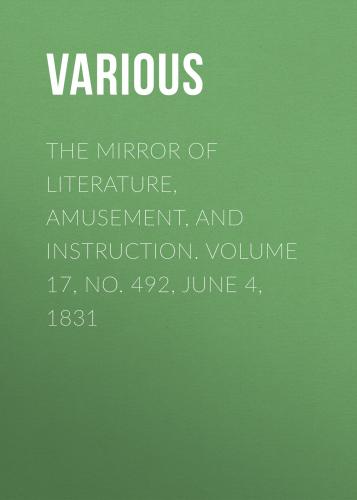All bliss is brief and superficial,
And should not be accounted as a good,
But that which lasts unto our being's end.
The life of man is threescore years and ten,
Which being summed in the whole amount
Unto some thousands of swift-winged days,
Of which there are not two alike;
So those which are to come, being unknown,
Are but a series of accidents:
Therefore esteem we no man happy,
But him whose happiness continues to the end!
We cannot win the prize until the contest's o'er!."
Cyrus.—Solon hath saved one king
And taught another! Torchmen, we reprieve
The captive Croesus.
PAUL'S CROSS
"–Friers and faytours have fonden such questions
To plese with the proud men, sith the pestilence time,4
And preachen at St. Paul's, for pure envi fo clarkes,
That praiers have no powre the pestilence to lette."
The early celebrity of Paul's Cross, as the greatest seat of pulpit eloquence, is evinced in the lines above quoted, which give us to understand that the most subtle and abstract questions in theology were handled here by the Friars, in opposition to the secular clergy, almost at the first settlement of that popular order of preachers in England.
Of the custom of preaching at crosses it is difficult to trace the origin; it was doubtless far more remote than the period alluded to, and Pennant thinks, at first accidental. The sanctity of this species of pillar, he observes, often caused a considerable resort of people to pay their devotion to the great object of their erection. A preacher, seeing a large concourse might be seized by a sudden impulse, ascend the steps, and deliver out his pious advice from a station so fit to inspire attention, and so conveniently formed for the purpose. The example might be followed till the practice became established by custom.
The famous Paul's Cross, like many others in various parts of the kingdom (afterwards converted to the same purpose,) was doubtless at first a mere common cross, and might be coeval with the Church. When it was covered and used as a pulpit cross, we are not informed. Stowe describes it in his time, "as a pulpit-crosse of timber, mounted upon steppes of stone, and covered with leade, standing in the church-yard, the very antiquitie whereof was to him unknowne." We hear of its being in use as early as the year 1259, when Henry III., in person commanded the mayor to swear before him every stripling of twelve years old and upwards, to be true to him and his heirs. Here in 1299, Ralph de Baldoc, dean of St. Paul's, cursed all those who had searched, in the church, of St. Martin in the Fields, for a hoard of gold, &c. Before this cross in 1483, was brought, divested of all her splendour, Jane Shore, the charitable, the merry concubine of Edward IV., and, after his death, of his favourite, the unfortunate Lord Hastings. After the loss of her protectors, she fell a victim to the malice of crook-backed Richard. He was disappointed (by her excellent defence) of convicting her of witchcraft, and confederating with her lover to destroy him. He then attacked her on the weak side of frailty. This was undeniable. He consigned her to the severity of the church: she was carried to the bishop's palace, clothed in a white sheet, with a taper in her hand, and from thence conducted to the cathedral, and the cross, before which she made a confession of her only fault. Every other virtue bloomed in this ill-fated fair with the fullest vigour. She could not resist the solicitations of a youthful monarch, the handsomest man of his time. On his death she was reduced to necessity, scorned by the world, and cast off by her husband, with whom she was paired in her childish years, and forced to fling herself into the arms of Hastings. "In her penance she went," says Holinshed
Конец ознакомительного фрагмента.
Текст предоставлен ООО «ЛитРес».
Прочитайте эту книгу целиком, купив полную легальную версию на ЛитРес.
Безопасно оплатить книгу можно банковской картой Visa, MasterCard, Maestro, со счета мобильного телефона, с платежного терминала, в салоне МТС или Связной, через PayPal, WebMoney, Яндекс.Деньги, QIWI Кошелек, бонусными картами или другим удобным Вам способом.
